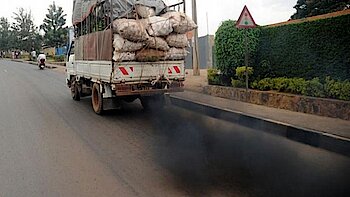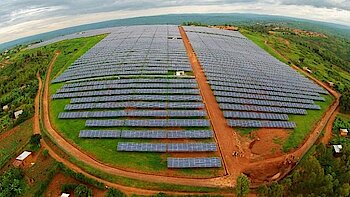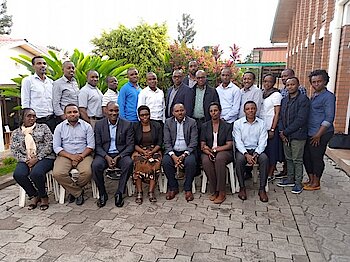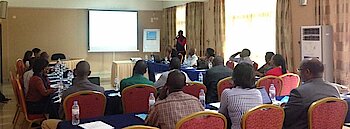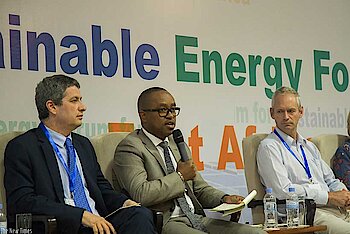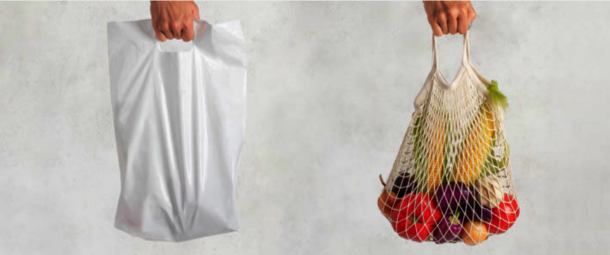
Develop business and deliver green growth solutions
The economic development is a concern for every country around the World and everyone is concerned with personnel development. However, it is no longer a success to reach at that point without considering the environment simultaneously. As the environment is the source of natural resource and this is the key source for economic development. Considering both the economic development and the environment protection at the same time, it is referred as green growth.
In fact, green growth strategy encourage innovation, as this can enhance efficiency in the use of natural capital and foster new economic opportunities, while business can make an important contribution to the transition of green growth.
Various business ideas are found in different sectors that need intervention to deliver green growth solutions and attain development as well as attaining the target set in Rwanda Nationally Determined Contributions. Every business owner can make an impact to reach that end.
To achieve the green growth, there is a need for renewable energy, green packaging, waste management, e-mobility, modern agriculture, clean cooking, etc
Let first explore some opportunities that are available in detail:
First, Rwanda possess significant renewable energy resources, and the government aims to utilize these, in order to reach its target and to phase out the fossil fuels due to the related high cost of generation. The source of renewable energy available is solar, hydro, geothermal, and wind.
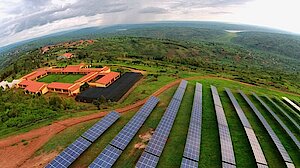
Most available and easy to use is the solar power. As Rwanda’s daily solar irradiation ranges from 4kWh/m2 to 5.4 KWh/m2 , however the conditions vary from season to season, with average daily irradiation levels in the cloudy reaching about 4.5 kWh/m2. Total annual potential is estimated to be around 66.8 Twh. This is a sector we can take business advantage.
Second, now we know how harmful is single use plastic bags, because they are difficult and costly to recycle and most end up in landfills sites where they take around 300 years to be decomposed. In fact, they break down into tiny toxic particles that contaminate the soil and waterways and enter the food chain when animals accidentally ingest them. In this way, green packaging are in need.
Green packaging are very important in environment protection as they use materials and manufacturing techniques to diminish energy use and reduce the harmful impacts of packaging on the environment. Green packaging solutions often include biodegradable and recyclable materials in preference to materials like plastic and Styrofoam.
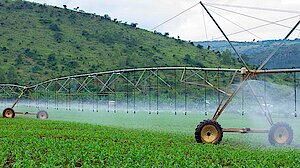
Other important sector to develop further by considering environment, is agriculture. Like most economic sectors, agriculture produces greenhouse gases. Agriculture emissions are generally linked to the management of agricultural soils, livestock, rice production and biomass burning. Then how could we develop this important sector by mitigating the climate change? There are many mitigation options in agriculture which bring a high yield as well such as using solar power in irrigation.
an other challenges to be tackled are related to the cooking system. Many people in Rwanda today rely on open fires and simple stoves to cook their food. But these methods of cooking can produce high levels of dangerous cooking smoke. According to the World Health Organization, household air pollution from cooking smoke kills four million people every year. Women and girls, who are often the primary cooks and fuel gatherers for their families suffer disproportionately.
Simply to have the solutions over this problem we need to have access to reliable, clean, modern cooking energy which enables people to live to their full potential. Some option available to bring clean cooking solutions is to use electricity, gas, ethanol, solar and the highest performing biomass stoves. Recently there is a good news, where Rwanda have established cook stove testing laboratory which will also be used for testing other aspects of renewable energies
Another sector that need a quick intervention is the waste management, that means from waste collection, to waste re-use. The most important reason for waste collection is the protection of the environment and the health of the population. Waste can cause air and water pollution. One most successful way of waste management is the waste recycling, which helps in conserving our natural resources but also reduces the cost of production of other product.
The study revealed that in Kigali City the waste generated in the day is estimates between 1,800 and 2,000 tons of solid municipal waste. This has a big implication on how waste management is an intervention sector for green growth and mitigating the greenhouse gases that are associated with them.
Last but not least, is the sector of transport. In Rwanda there are 213,200 vehicles (2018-2019) that use fuel, and this number is expected to be higher. This contribute much air pollution and greenhouse gases in atmosphere. It is the reason why, Rwanda government is advancing the use of electric mobility. Supporting the increasing use of electric vehicle not only improves the quality of life in Rwanda but also the economic development. Working in this sector brings much high business sustainability and the green growth solutions, as it is indicated by Rwanda Nationally Determined contribution submitted to the UNFCCC in May 2020.
Topics
More posts
Switching to electric vehicles is a mean to reduce greenhouse gases emissions and improve air quality in the City of Kigali
Over the last 150 years, human activities have greatly contributed to the increase of greenhouse gases in the atmosphere, which make the planet…
Green Growth as an Opportunity for Business
Twenty-eight years after the Rio Summit, the countries embrace the vision for development by expanding the economy and addressing the environment…
Contributors to the Rwanda Climate Change Portal completed 3 days in a workshop
Key contributors to the national climate change portal gathered in a consultation and training workshop to enhance the content required to be…
Rwanda NDCs Detailed Implementation Plan disseminated
Nowadays, climate change has become significant and emerging global challenge that the World is facing. Addressing the risks of climate change…
East African Centre for Renewable Energy and Energy Efficiency organizes the first Sustainable Energy Forum (SEF) for East Africa
The Sustainable Energy Forum (SEF) for East Africa was organized by the East African Centre for Renewable Energy and Energy Efficiency (EACREEE), in…
